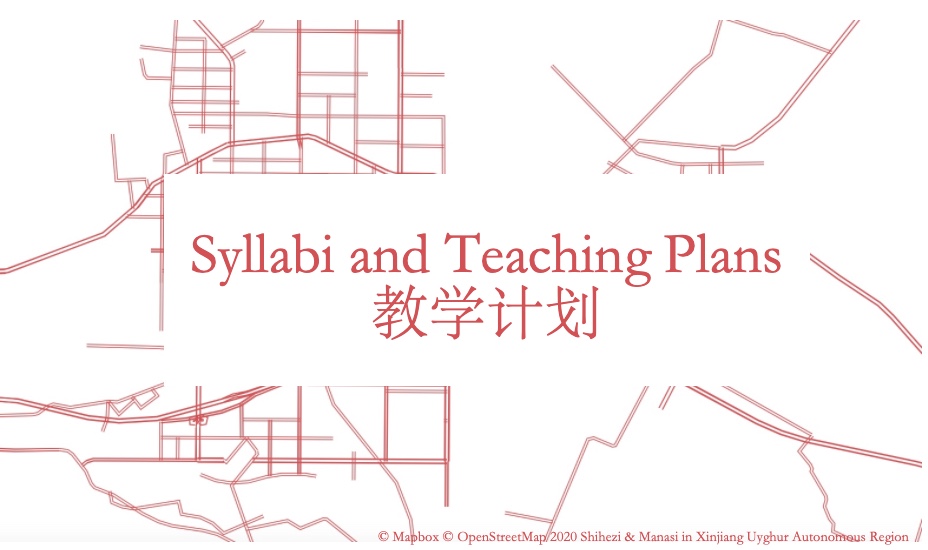
Introduction
This section includes lesson plans for educators and syllabi suitable for different disciplines at various levels.
Our goal is to provide materials that teachers can copy and use in current classes or examples they can consult in developing new modules. Please provide any feedback, insight, or work you would like to share with us at xinjiang.documentation@ubc.ca.
Role-Playing Game: The Quandary of Muslim Minorities in Xinjiang
Contributed by You Xi
Assistant Professor of History
You Xi designed the Xinjiang game for a teaching demo at a campus visit after being given the task of teaching race and religion in modern Chinese history. You Xi consulted with Mark Carnes, the founder of Reacting to the Past, about the game design. The main goal is to make students aware of the contemporary crisis of Muslim minorities in Xinjiang, through reading government documents, journalist reports and witness accounts. At first, participants will take the roles as college students of three different ethnic minority groups – Uyghurs, Huis and Kazakhs. Each of them has a different response to government crackdown and re-education camps in Xinjiang: pursuing international attention, staying silent, and going abroad. Each group will receive a role sheet detailing their objectives and sources. After each group presents their case, by throwing a dice, some participants will be thrown into jail, while others will be reincarnated as government officials who will decide the fate of those arrested students. You Xi hopes the game will help students practice primary source analysis and public speaking skills, and understand various perspectives regarding Muslim minorities in China.
Xinjiang Role Playing Game Guidelines
Xinjiang Role Playing Game Role Sheets
The Contested Archive
Contributed by Eric Schluessel
Assistant Professor of History
George Washington University
In conjunction with the Xinjiang Victims Database, students will analyze primary sources to develop their own understanding of the situation based the evidence at hand. This is a “history of the present” exercise in which students will spend a class period conducting simulated research in a “Xinjiang archive.” They will begin with a simple question—“What is happening in Xinjiang?”—and come to their own conclusions through a guided activity. Prof. Schluessel’s research focuses on the social and economic history of Xinjiang. He has published a monograph on the Qing empire’s efforts to transform Xinjiang into a culturally Chinese territory, Land of Strangers: The Civilizing Project in Qing Central Asia, as well as articles on the region’s experiences with local government and the law.
Genocide Today
Contributed by Magnus Fiskesjö
Associate Professor of Anthropology
Cornell University
This course has three components: 1, Background on genocide and on the Genocide Convention of 1948, 2, the Rohingya genocide in Burma which was started in 2017, and 3, the genocide against the Uyghurs, Kazakhs and other native people of western China (Xinjiang), also started in 2017. The course objective is to have students learn about the concept and history of genocide as the intentional annihilation of a group or nation, and to understand and compare the origins, development, and criticism of the current ongoing genocides in Burma and in China.
–Prof. Fiskesjö’s research interests include ethno-politics and interethnic relations in East and Southeast Asia, as well as cultural heritage and archeology. He has published on ethnicity, genocide, forced confessions in China, and more.
Language, Knowledge, and Power
Contributed by Sam Liao
Associate Professor of Philosophy
University of Puget Sound
Language, Knowledge, and Power is an introductory philosophy course that draws on current events in Xinjiang to examine the intersection of technology, social epistemology, and oppression. Students will contextualize their reading of primary sources such as leaked official documents with theoretical texts on language games and knowledge production. This teaching plan was originally published on Medium.com. Prof. Liao’s research interests include etiquette, race, and decolonization, and he has published articles on topics such as imaginative resistance.